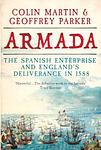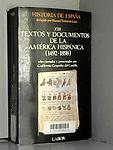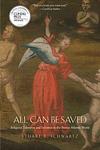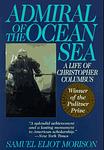The Greatest "History, Spain" Books of All Time
Click to learn how this list is calculated.
This list represents a comprehensive and trusted collection of the greatest books. Developed through a specialized algorithm, it brings together 300 'best of' book lists to form a definitive guide to the world's most acclaimed books. For those interested in how these books are chosen, additional details can be found on the rankings page.
Genres
The category of "History" in books refers to the study and interpretation of past events, societies, and cultures. It encompasses a wide range of topics, including political, social, economic, and cultural developments, as well as the lives of individuals and groups who have shaped the course of history. History books can be written from various perspectives and may focus on specific time periods, regions, or themes. They aim to provide readers with a deeper understanding of the past and its impact on the present.
The "Spain" category of books refers to literature that is set in or about Spain, its culture, history, and people. This category includes a wide range of genres such as fiction, non-fiction, memoirs, travelogues, and historical accounts. Books in this category may explore the rich history of Spain, its diverse regions, its art and architecture, its cuisine, and its people. They may also delve into the country's political and social issues, its traditions, and its contemporary culture. Overall, the "Spain" category offers readers a fascinating glimpse into the vibrant and complex world of Spain.
Countries
Date Range
Reading Statistics
Click the button below to see how many of these books you've read!
Download
If you're interested in downloading this list as a CSV file for use in a spreadsheet application, you can easily do so by clicking the button below. Please note that to ensure a manageable file size and faster download, the CSV will include details for only the first 500 books.
Download-
1. Homage to Catalonia by George Orwell
The book is a personal account of the author's experiences during the Spanish Civil War, specifically his time with the POUM (Partit Obrer d'Unificació Marxista) militia in Catalonia. He provides an in-depth look at the social revolution that took place, the daily life of a soldier, the political infighting and betrayals among the Republican factions, and his eventual disillusionment with the cause he initially supported. The book is both a war memoir and a detailed analysis of a complex political situation.
-
2. The Mediterranean And The Mediterranean World In The Age Of Philip Ii by Fernand Braudel
This seminal work offers a comprehensive analysis of the Mediterranean region during the 16th century, focusing on the complex social, political, and economic landscapes that defined the era of Philip II of Spain. The book transcends traditional historiography by emphasizing the geographical and ecological factors that shaped human activity, from the ebb and flow of commerce and the patterns of agrarian life to the rise and fall of empires. Through a meticulous study of the Mediterranean world, the narrative weaves together the intricate tapestry of cultures, religions, and power dynamics that characterized the period, providing a vivid portrayal of the enduring influence of the environment on the course of human history.
-
3. The True History of the Conquest of New Spain by Bernal Díaz del Castillo
This book provides a first-hand account of the conquest of Mexico by the Spanish during the 16th century. It offers a detailed narrative of the events, battles, and interactions with native tribes, including the Aztecs. The author, a soldier in the Spanish army, provides a unique perspective on Hernán Cortés and his tactics, the politics of the time, and the cultural and religious practices of the indigenous people. The book also highlights the hardships, challenges, and ethical dilemmas faced by the conquistadors.
-
4. Spain, Take This Chalice from Me by César Vallejo
"Spain, Take This Chalice from Me" is a poignant collection of poetry that reflects on the Spanish Civil War's brutal impact. The author, deeply moved by the conflict, uses powerful imagery and emotive language to express the heartbreak, despair, and hope experienced by the Spanish people. The poems serve as a profound commentary on war, exploring themes of sacrifice, struggle, and resilience in the face of adversity.
-
5. The Armada by Garrett Mattingly
"The Armada" is a comprehensive historical account of the attempted invasion of England by the Spanish Armada in 1588. This work meticulously chronicles the political and religious turmoil of the era, the strategic planning and execution of the naval campaign by the Spanish, and the defensive maneuvers of the English under the leadership of Queen Elizabeth I. The narrative delves into the personalities of key figures, the technological and tactical aspects of 16th-century naval warfare, and the broader European context, culminating in a detailed examination of the battles and the Armada's eventual disastrous defeat, which had lasting consequences for the balance of power in Europe.
-
6. América Hispánica: (1492-1898) by Guillermo Céspedes del Castillo
"América Hispánica: (1492-1898)" is a comprehensive historical analysis of Hispanic America from the time of Christopher Columbus's first voyage in 1492 to the end of Spanish rule in 1898. The author meticulously details the exploration, conquest, and colonization of the Americas, the establishment of Spanish rule, the socio-economic structures, and the eventual struggles for independence. The book offers a deep understanding of the complex and often turbulent history of Hispanic America during this period.
-
7. Poem of the Cid by Unknown
"Poem of the Cid" is an epic poem that narrates the legendary deeds of Rodrigo Díaz de Vivar, also known as El Cid, a Castilian nobleman and military leader in medieval Spain. The story follows El Cid's exile from the court of King Alfonso VI of León and his subsequent journey to regain his honor, win back the favor of the king, and reclaim his rightful place in society. The poem is a rich tapestry of chivalry, loyalty, betrayal, and redemption, offering a vivid glimpse into the socio-political landscape of 11th-century Spain.
-
8. Leo Africanus by Amin Maalouf
This historical novel follows the life of a real-life Andalusian-born traveler of the 16th century, who is captured by Christian pirates and presented as a gift to the Pope. Renamed after the pontiff, he becomes a respected scholar and diplomat, navigating the complex cultural and religious divides of the Mediterranean world. Throughout his journeys, which take him from his birthplace in Granada to Fez, Timbuktu, Constantinople, and Rome, he witnesses the tumultuous events of his time, including the fall of Granada and the rise of the Ottoman Empire. His story is one of identity, belonging, and the universal quest for knowledge and understanding amidst a backdrop of conflict and change.
-
9. Man's Hope by Andre Malraux
Set against the backdrop of the Spanish Civil War, the novel delves into the complexities of political and personal struggle, following a diverse group of individuals united by their commitment to the Republican cause. These characters, ranging from idealistic volunteers to seasoned militants, grapple with the brutal realities of warfare, the ideological conflicts within their own ranks, and the sacrifices demanded by their shared pursuit of a hopeful vision for humanity. Through their intertwined stories, the narrative explores themes of courage, camaraderie, and the often tragic nature of revolutionary fervor, painting a vivid portrait of a pivotal moment in 20th-century history.
-
10. Visions by Francisco de Quevedo
"Visions" is a satirical work that delves into the moral and social decay of Spanish society during the Baroque period. Through a series of allegorical and fantastical visions, the author exposes the vices and follies of various social classes and professions. With sharp wit and a critical eye, the text presents a series of dreamlike scenarios where the dead reveal the hypocrisy, corruption, and pretensions of the living. The work is known for its dark humor, rich language, and the use of grotesque imagery to critique the moral shortcomings of humanity, reflecting the author's disillusionment with the world around him.
-
11. Voices Of The Old Sea by Norman Lewis
"Voices of the Old Sea" is a captivating travel memoir that chronicles the author's experiences in a remote fishing village on the Costa Brava in Spain over three summers in the early 1950s. The book captures the transformation of the village from a traditional, insular community steeped in ancient customs and subsistence living, to a burgeoning site for tourism. Through vivid descriptions and insightful observations, the author portrays the clash between old ways and new economic realities, exploring the impact of change on the villagers' lives and culture. The narrative serves as a poignant reflection on the loss of simplicity and authenticity in the face of modernization and commercialization.
-
12. Operation Mincemeat by Ben Macintyre
The book is a gripping account of one of the most successful and bizarre deception operations of World War II, orchestrated by British intelligence. It tells the true story of how British officials concocted an elaborate scheme to mislead Nazi Germany about the Allies' next strategic move by planting false information on a corpse dressed as a British officer. The body, carrying fake secret documents suggesting an Allied invasion of Greece and Sardinia, was set adrift to be found by Axis forces. The ruse, hinging on the authenticity of the planted persona and the documents he carried, aimed to divert German forces away from the actual target: Sicily. The operation's success played a crucial role in the overall Allied campaign in the Mediterranean, showcasing the ingenuity and daring of wartime espionage.
-
13. All Can Be Saved by Stuart B. Schwartz
"All Can Be Saved" explores the diverse and often overlooked religious views in colonial Latin America, particularly among the common people who challenged the rigid doctrines imposed by the Spanish and Portuguese empires. The book delves into the personal beliefs and practices of individuals who, despite the threat of the Inquisition, dared to express and follow their own interpretations of Christianity. Through extensive archival research, the author reveals a complex tapestry of faith that includes dissenting views on salvation, morality, and the authority of the Church, highlighting the spiritual autonomy and resistance among the colonized populations in the face of imperial and religious domination.
-
14. Admiral of the Ocean Sea by Samuel Eliot Morison
This book is a comprehensive biography of Christopher Columbus, providing an in-depth exploration of his life, voyages, and discoveries. It delves into his navigation skills, his interactions with indigenous people, and his role in the colonization of the New World. The author, a renowned historian, combines historical facts with a narrative style, offering a detailed account of Columbus's expeditions, his struggles, and his achievements, thus painting a vivid picture of this complex and controversial figure in history.
Reading Statistics
Click the button below to see how many of these books you've read!
Download
If you're interested in downloading this list as a CSV file for use in a spreadsheet application, you can easily do so by clicking the button below. Please note that to ensure a manageable file size and faster download, the CSV will include details for only the first 500 books.
Download












